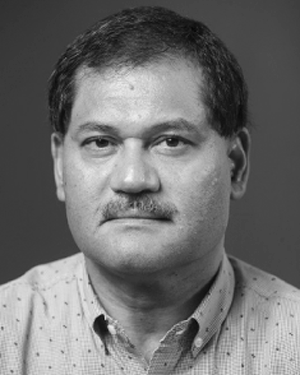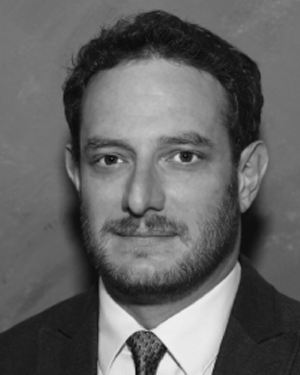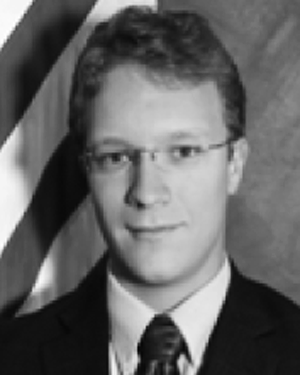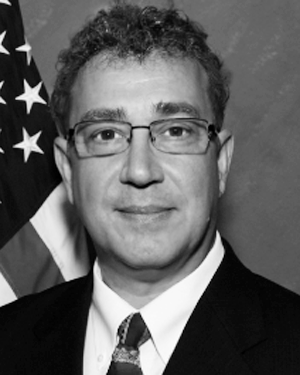Abstract:
Intelligent learning environments can be designed to support the development of learners' cognitive skills, strategies, and metacognitive processes as they work on comple...Show MoreMetadata
Abstract:
Intelligent learning environments can be designed to support the development of learners' cognitive skills, strategies, and metacognitive processes as they work on complex decision-making and problem-solving tasks. However, the complexity of the tasks may impede the progress of novice learners. Providing adaptive feedback to learners who face difficulties requires learner modeling approaches that can identify learners' proficiencies and the difficulties they face in executing required skills, strategies, and metacognitive processes. This paper discusses a multilevel hierarchical learner modeling scheme that analyzes and captures learners' cognitive processes and problem-solving strategies along with their performance on assigned tasks in a game-based environment called UrbanSim that requires complex decision making for dealing with counterinsurgency scenarios. As the scenario evolves in a turn-by-turn fashion, UrbanSim evaluates the learners' moves using a number of performance measures. Our learner modeling scheme interprets the reported performance values by analyzing the learners' activities captured in log files to derive learners' proficiencies in associated cognitive skills and strategies, and updates the learner model. We discuss the details of the learner modeling algorithms in this paper, and then demonstrate the effectiveness of our approach by presenting results from a study we conducted at Vanderbilt University.
Published in: IEEE Transactions on Learning Technologies ( Volume: 13, Issue: 1, 01 Jan.-March 2020)
Funding Agency:

Department of EECS, Institute for Software Integrated Systems, Vanderbilt University, Nashville, USA
Gautam Biswas is a Cornelius Vanderbilt Professor of engineering, and a Professor of computer science and computer engineering with the EECS Department, and a Senior Research Scientist at the Institute for Software Integrated Systems, Vanderbilt University, Nashville, TN, USA. He conducts research in intelligent systems with primary interests in modeling and simulation, analysis of complex embedded systems, data mining, a...Show More
Gautam Biswas is a Cornelius Vanderbilt Professor of engineering, and a Professor of computer science and computer engineering with the EECS Department, and a Senior Research Scientist at the Institute for Software Integrated Systems, Vanderbilt University, Nashville, TN, USA. He conducts research in intelligent systems with primary interests in modeling and simulation, analysis of complex embedded systems, data mining, a...View more

Department of EECS, Institute for Software Integrated Systems, Vanderbilt University, Nashville, USA
Ramkumar Rajendran received the M.E. degree from Anna University, Chennai, India, and the Ph.D. degreefrom IITB-Monash Research Academy, Mumbai, India, and Monash University, Melbourne, Australia. He is a Research Scholar at the Institute for Software Integrated Systems, Vanderbilt University, Nashville, TN, USA. Prior to this, he worked as an Assistant Manager with NEC Central Research Laboratory, Kanagawa, Japan. His re...Show More
Ramkumar Rajendran received the M.E. degree from Anna University, Chennai, India, and the Ph.D. degreefrom IITB-Monash Research Academy, Mumbai, India, and Monash University, Melbourne, Australia. He is a Research Scholar at the Institute for Software Integrated Systems, Vanderbilt University, Nashville, TN, USA. Prior to this, he worked as an Assistant Manager with NEC Central Research Laboratory, Kanagawa, Japan. His re...View more

Department of EECS, Institute for Software Integrated Systems, Vanderbilt University, Nashville, USA
Naveeduddin Mohammed received the B.E. degree in information technology from Osmania University, Hyderabad, India, and the M.S. degree in computer and information sciences from the University of Colorado at Denver, Denver, CO, USA. He is currently working as a Research Engineer at the Institute for Software Integrated Systems, Vanderbilt University, Nashville, TN, USA. His work focuses on designing, developing, and mainta...Show More
Naveeduddin Mohammed received the B.E. degree in information technology from Osmania University, Hyderabad, India, and the M.S. degree in computer and information sciences from the University of Colorado at Denver, Denver, CO, USA. He is currently working as a Research Engineer at the Institute for Software Integrated Systems, Vanderbilt University, Nashville, TN, USA. His work focuses on designing, developing, and mainta...View more

US Army Research Laboratory, Human Research and Engineering Directorate, Orlando, USA
Benjamin S. Goldberg is a Ph.D. graduate from the University of Central Florida, Orlando, FL, USA, in the program of modeling and simulation. He is a member of the Learning in Intelligent Tutoring Environments (LITE) Lab, the US Army Research Laboratory's Human Research and Engineering Directorate, Orlando, FL, USA. He has been conducting research in the modeling and simulation community for the past nine years with a foc...Show More
Benjamin S. Goldberg is a Ph.D. graduate from the University of Central Florida, Orlando, FL, USA, in the program of modeling and simulation. He is a member of the Learning in Intelligent Tutoring Environments (LITE) Lab, the US Army Research Laboratory's Human Research and Engineering Directorate, Orlando, FL, USA. He has been conducting research in the modeling and simulation community for the past nine years with a foc...View more

US Army Research Laboratory, Human Research and Engineering Directorate, Orlando, USA
Robert A. Sottilare leads adaptive training research with the US Army Research Laboratory, Adelphi, MD, USA, and is a Faculty Scholar and an Adjunct Professor at the University of Central Florida, Orlando, FL, USA, where he teaches a graduate-level course in intelligent tutoring systems design. He is a co-creator of the Generalized Intelligent Framework for Tutoring. He is a recipient of two lifetime achievement awards fr...Show More
Robert A. Sottilare leads adaptive training research with the US Army Research Laboratory, Adelphi, MD, USA, and is a Faculty Scholar and an Adjunct Professor at the University of Central Florida, Orlando, FL, USA, where he teaches a graduate-level course in intelligent tutoring systems design. He is a co-creator of the Generalized Intelligent Framework for Tutoring. He is a recipient of two lifetime achievement awards fr...View more

US Army Research Laboratory, Human Research and Engineering Directorate, Orlando, USA
Keith Brawner received the Ph.D. degree in computer engineering with a focus on intelligent systems and machine learning from the University of Central Florida, Orlando, FL, USA. He is a Researcher for the Learning in Intelligent Tutoring Environments (LITE) Lab within the US Army Research Laboratory's Human Research & Engineering Directorate. He has 12 years of experience within US Army and Navy acquisition, development,...Show More
Keith Brawner received the Ph.D. degree in computer engineering with a focus on intelligent systems and machine learning from the University of Central Florida, Orlando, FL, USA. He is a Researcher for the Learning in Intelligent Tutoring Environments (LITE) Lab within the US Army Research Laboratory's Human Research & Engineering Directorate. He has 12 years of experience within US Army and Navy acquisition, development,...View more

Dignitas Technologies, Orlando, USA
Michael Hoffman is a Senior Software Engineer with Dignitas Technologies, Orlando, FL, USA. He is the Technical Lead on the Generalized Intelligent Framework for Tutoring (GIFT) project and has been responsible for ensuring that the development of GIFT meets the evolving customer requirements in addition to supporting both intelligent tutoring for computer-based training and intelligent tutoring technology research of the...Show More
Michael Hoffman is a Senior Software Engineer with Dignitas Technologies, Orlando, FL, USA. He is the Technical Lead on the Generalized Intelligent Framework for Tutoring (GIFT) project and has been responsible for ensuring that the development of GIFT meets the evolving customer requirements in addition to supporting both intelligent tutoring for computer-based training and intelligent tutoring technology research of the...View more

Department of EECS, Institute for Software Integrated Systems, Vanderbilt University, Nashville, USA
Gautam Biswas is a Cornelius Vanderbilt Professor of engineering, and a Professor of computer science and computer engineering with the EECS Department, and a Senior Research Scientist at the Institute for Software Integrated Systems, Vanderbilt University, Nashville, TN, USA. He conducts research in intelligent systems with primary interests in modeling and simulation, analysis of complex embedded systems, data mining, and computer-based learning environments for STEM disciplines. He has also developed innovative educational data mining techniques for studying students’ learning behaviors and linking them to metacognitive strategies. His research has been supported by funding from ARL, NASA, NSF, DARPA, and the US Department of Education. He is a Fellow of the PHM societies.
Gautam Biswas is a Cornelius Vanderbilt Professor of engineering, and a Professor of computer science and computer engineering with the EECS Department, and a Senior Research Scientist at the Institute for Software Integrated Systems, Vanderbilt University, Nashville, TN, USA. He conducts research in intelligent systems with primary interests in modeling and simulation, analysis of complex embedded systems, data mining, and computer-based learning environments for STEM disciplines. He has also developed innovative educational data mining techniques for studying students’ learning behaviors and linking them to metacognitive strategies. His research has been supported by funding from ARL, NASA, NSF, DARPA, and the US Department of Education. He is a Fellow of the PHM societies.View more

Department of EECS, Institute for Software Integrated Systems, Vanderbilt University, Nashville, USA
Ramkumar Rajendran received the M.E. degree from Anna University, Chennai, India, and the Ph.D. degreefrom IITB-Monash Research Academy, Mumbai, India, and Monash University, Melbourne, Australia. He is a Research Scholar at the Institute for Software Integrated Systems, Vanderbilt University, Nashville, TN, USA. Prior to this, he worked as an Assistant Manager with NEC Central Research Laboratory, Kanagawa, Japan. His research interest includes learning analytics, intelligent learning environments, affective state recognition, automated reasoning, and natural language processing.
Ramkumar Rajendran received the M.E. degree from Anna University, Chennai, India, and the Ph.D. degreefrom IITB-Monash Research Academy, Mumbai, India, and Monash University, Melbourne, Australia. He is a Research Scholar at the Institute for Software Integrated Systems, Vanderbilt University, Nashville, TN, USA. Prior to this, he worked as an Assistant Manager with NEC Central Research Laboratory, Kanagawa, Japan. His research interest includes learning analytics, intelligent learning environments, affective state recognition, automated reasoning, and natural language processing.View more

Department of EECS, Institute for Software Integrated Systems, Vanderbilt University, Nashville, USA
Naveeduddin Mohammed received the B.E. degree in information technology from Osmania University, Hyderabad, India, and the M.S. degree in computer and information sciences from the University of Colorado at Denver, Denver, CO, USA. He is currently working as a Research Engineer at the Institute for Software Integrated Systems, Vanderbilt University, Nashville, TN, USA. His work focuses on designing, developing, and maintaining frameworks for open-ended computer-based learning environments.
Naveeduddin Mohammed received the B.E. degree in information technology from Osmania University, Hyderabad, India, and the M.S. degree in computer and information sciences from the University of Colorado at Denver, Denver, CO, USA. He is currently working as a Research Engineer at the Institute for Software Integrated Systems, Vanderbilt University, Nashville, TN, USA. His work focuses on designing, developing, and maintaining frameworks for open-ended computer-based learning environments.View more

US Army Research Laboratory, Human Research and Engineering Directorate, Orlando, USA
Benjamin S. Goldberg is a Ph.D. graduate from the University of Central Florida, Orlando, FL, USA, in the program of modeling and simulation. He is a member of the Learning in Intelligent Tutoring Environments (LITE) Lab, the US Army Research Laboratory's Human Research and Engineering Directorate, Orlando, FL, USA. He has been conducting research in the modeling and simulation community for the past nine years with a focus on adaptive learning in simulation-based environments and how to leverage Artificial Intelligence tools and methods to create personalized learning experiences. He is currently the LITE Lab's Lead Scientist on instructional management research within adaptive training environments and is a co-creator of the Generalized Intelligent Framework for Tutoring.
Benjamin S. Goldberg is a Ph.D. graduate from the University of Central Florida, Orlando, FL, USA, in the program of modeling and simulation. He is a member of the Learning in Intelligent Tutoring Environments (LITE) Lab, the US Army Research Laboratory's Human Research and Engineering Directorate, Orlando, FL, USA. He has been conducting research in the modeling and simulation community for the past nine years with a focus on adaptive learning in simulation-based environments and how to leverage Artificial Intelligence tools and methods to create personalized learning experiences. He is currently the LITE Lab's Lead Scientist on instructional management research within adaptive training environments and is a co-creator of the Generalized Intelligent Framework for Tutoring.View more

US Army Research Laboratory, Human Research and Engineering Directorate, Orlando, USA
Robert A. Sottilare leads adaptive training research with the US Army Research Laboratory, Adelphi, MD, USA, and is a Faculty Scholar and an Adjunct Professor at the University of Central Florida, Orlando, FL, USA, where he teaches a graduate-level course in intelligent tutoring systems design. He is a co-creator of the Generalized Intelligent Framework for Tutoring. He is a recipient of two lifetime achievement awards from the US Army and the National Training and Simulation Association.
Robert A. Sottilare leads adaptive training research with the US Army Research Laboratory, Adelphi, MD, USA, and is a Faculty Scholar and an Adjunct Professor at the University of Central Florida, Orlando, FL, USA, where he teaches a graduate-level course in intelligent tutoring systems design. He is a co-creator of the Generalized Intelligent Framework for Tutoring. He is a recipient of two lifetime achievement awards from the US Army and the National Training and Simulation Association.View more

US Army Research Laboratory, Human Research and Engineering Directorate, Orlando, USA
Keith Brawner received the Ph.D. degree in computer engineering with a focus on intelligent systems and machine learning from the University of Central Florida, Orlando, FL, USA. He is a Researcher for the Learning in Intelligent Tutoring Environments (LITE) Lab within the US Army Research Laboratory's Human Research & Engineering Directorate. He has 12 years of experience within US Army and Navy acquisition, development, and research agencies. He manages and advises research in adaptive training and architectural programs toward next-generation training. His research interests include machine learning, cognitive architectures, learning technologies, and ITS architecture.
Keith Brawner received the Ph.D. degree in computer engineering with a focus on intelligent systems and machine learning from the University of Central Florida, Orlando, FL, USA. He is a Researcher for the Learning in Intelligent Tutoring Environments (LITE) Lab within the US Army Research Laboratory's Human Research & Engineering Directorate. He has 12 years of experience within US Army and Navy acquisition, development, and research agencies. He manages and advises research in adaptive training and architectural programs toward next-generation training. His research interests include machine learning, cognitive architectures, learning technologies, and ITS architecture.View more

Dignitas Technologies, Orlando, USA
Michael Hoffman is a Senior Software Engineer with Dignitas Technologies, Orlando, FL, USA. He is the Technical Lead on the Generalized Intelligent Framework for Tutoring (GIFT) project and has been responsible for ensuring that the development of GIFT meets the evolving customer requirements in addition to supporting both intelligent tutoring for computer-based training and intelligent tutoring technology research of the growing user community.
Michael Hoffman is a Senior Software Engineer with Dignitas Technologies, Orlando, FL, USA. He is the Technical Lead on the Generalized Intelligent Framework for Tutoring (GIFT) project and has been responsible for ensuring that the development of GIFT meets the evolving customer requirements in addition to supporting both intelligent tutoring for computer-based training and intelligent tutoring technology research of the growing user community.View more


